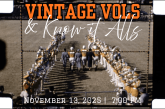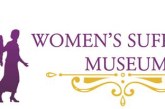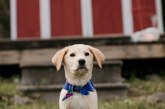How beer, process, community and a thirst for knowledge relate to BIG EARS
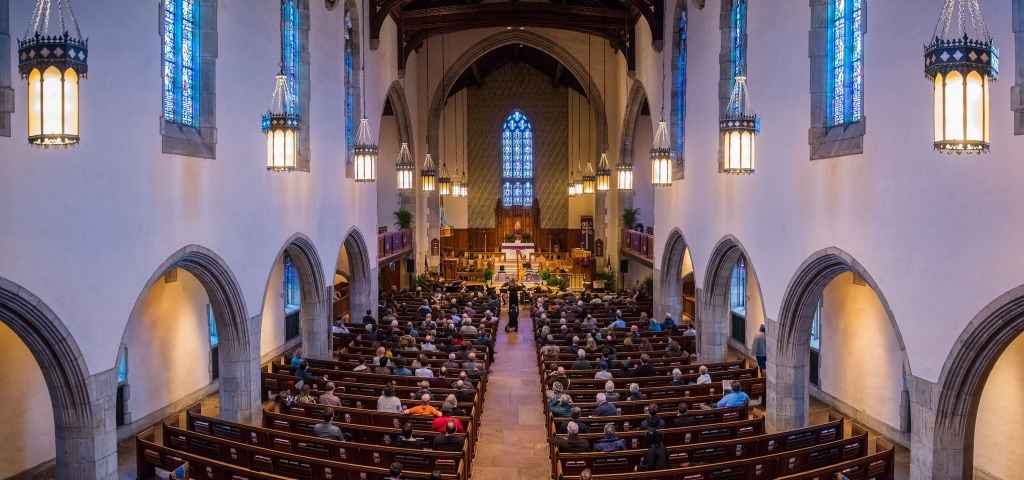
NO FLUKE: Interview with Founder Ashley Capps • Artist Profile: Caroline Williams, author of ‘Lucy Negro Redux’ • Into the Rabbit Hole • BLANK’S BIG EARS ARTIST GUIDE • FILM Guide • Pilot Light • Tickets • Schedule
Big Ears changed my life. It changed how I look at music. It changed how I look at everything. It changed my very definition of music. This isn’t a normal thing. I’ve enjoyed my times at Bonnaroo, Forecastle and High Water, but no other music festival has challenged me or changed my perceptions of the world. As my favorite weekend of the year approaches once again, I began to wonder what it is that makes Big Ears so unique and special.
I immediately recalled a conversation I had with Aaron McClain, co-owner of Crafty Bastard Brewery. McClain had told me that the Big Ears weekend is one of their busiest of the year, and I also had heard that the Book Eddy in Happy Holler had their biggest weekend during the festival. Suttree’s High Gravity Tavern hosts a popular beer exchange at the same time and is packed throughout the weekend. As a result, it occurred to me that maybe the kinds of people who attend Big Ears are different than the people who attend all the other events in the city. Instead, Big Ears patrons are the kind of folks who Google “10 best breweries in Knoxville” and come to town with four pages of notes on things they want to do apart from the festival.
It really struck me later when I was discussing sour beers with a friend. I had explained that although I initially didn’t enjoy the style, I kept trying them and eventually learned to love them. “Why?” my friend asked me. “Why would you work to learn to like something you hate?” It seemed like a nonsense question to me, and I immediately realized that we had different points of view about how to enjoy food and culture.
Sour beers and avant-garde music are both huge subjects; they are rabbit holes. Some people see a rabbit hole and think, “Man, that’s a big hole. I’m stepping right over that,” while others can’t help but dive in. I became curious about what made a person a diver of rabbit holes and interviewed more than 20 Knoxvillians who regularly attend Big Ears to identify commonalities among them. Over the course of my interviews, I found that attendees of Big Ears are defined by curiosity, by a sense of adventure, by a love of process and how things work and by a search for community.
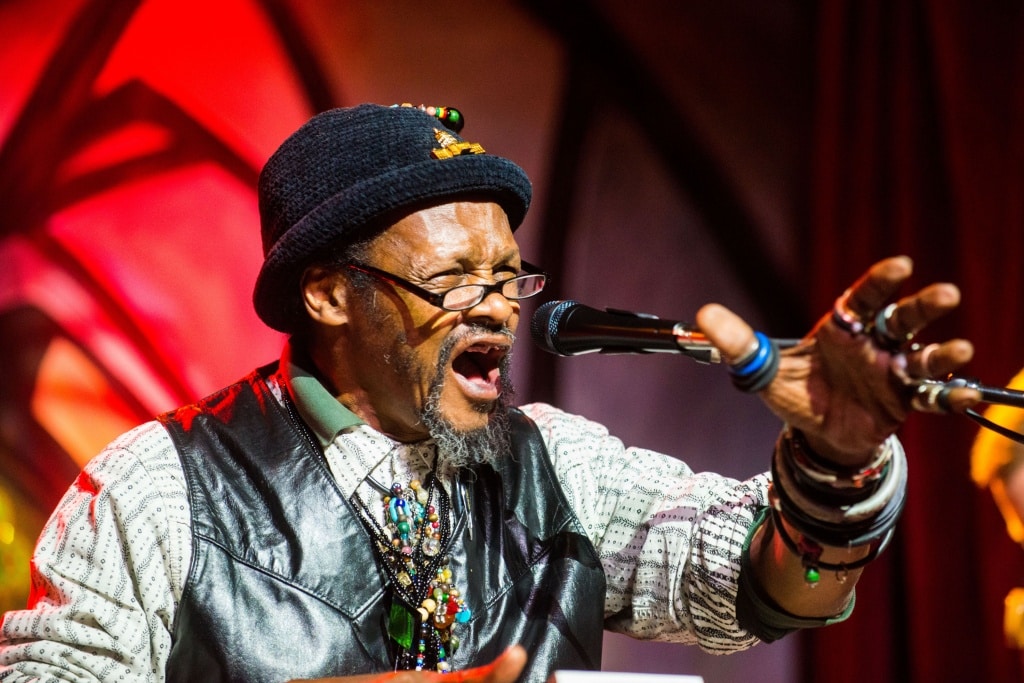
It begins with open-mindedness, asserts Jesse Fox Mayshark, co-founder of Compass Knoxville. “To engage with it, you have to be open instead of closed. You walk in with a default setting of, ’I’m gonna try to enjoy this’ because if you walk in with a filter, you’ll shut down. But if you are of the mindset that it’s OK to find new things, then Big Ears is just this endless trove.”
Every single person I interviewed mentioned that they thought of themselves as curious. George Talley, cicerone at Suttree’s, told me, “There is a certain drive that people have, and you can group people by it. The common thread is that they want to explore, they want to know. There is a drive to find richness in life and to see everything there is to see and to experience what there is to experience. It’s people who realize they don’t know something and want to know and will go out of their way to learn because it is valuable to them at a deep emotional level – not just an academic level – to know something.”
Christina Horn, an audio engineer and musician, had a similar experience. “My first exposure to music, I had one of those profound experiences where I was like, ‘This is great, it’s escapism. I can leave my head and my body,’” she says. “But it’s like yoga [where] you get bored with the same positions over and over again, and you’re like, ‘There has to be more.’
“For me, if you study music and your life is music, you get bored. The first thing I got bored with was diatonic. I wanted to live in the cracks in between the keys. It seemed limiting, and Big Ears represents that passion for exploration. There’s more than what I know. Only fools are sure of themselves, and there is so much more than my little brain can know.”
Matt Rankin, BLANK editor and contributor, agrees, saying “Regular pop music – radio music – never really appealed to me. I had an internal desire to hear things that don’t equate to being radio-friendly. That hits my ear in a good way.” Brett Winston, owner of Plainview Media, elaborates further: “If I was going to crystalize every artist at Big Ears, they all craft their songs in a way that most artists don’t. They crafted them beyond a I-IV-V blues progression. Every aspect is thought out in a way that most music is not.”
According to Jesse Bowers, founder of Abridged Brewing Co., many people express their curiosity as an interest in other cultures, including their music. “People will argue it’s how you were raised, what you were exposed to or [that] you have a predisposition. That’s kind of the argument: nature versus nurture, trying weird beers and food … but for me, it wasn’t like that. For me, it was like, ‘Wow, that’s a really interesting culture, and I want to try their food and beer.’”
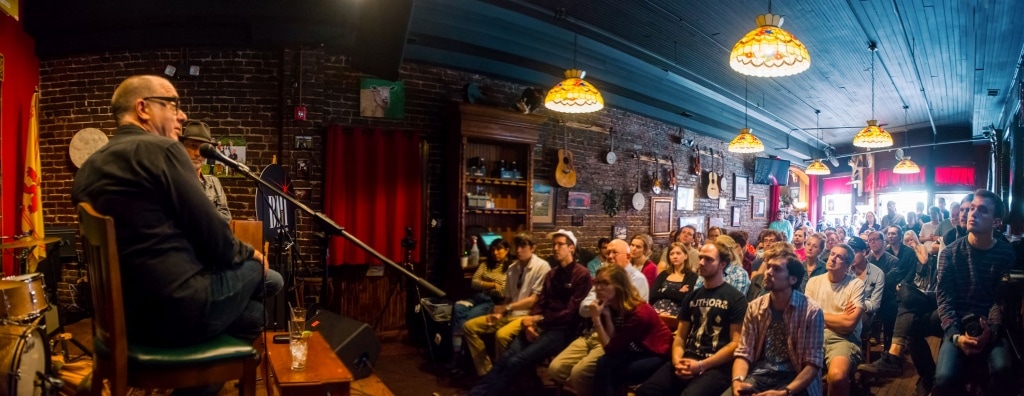
Jen Parker, another co-owner of Crafty Bastard, says, “Anyone that’s watched a travel show like Anthony Bourdain, the things he talks about when he visits a town or a city or a country, what does he talk about? The food, the music, the beer. Because those are all intrinsically a part of culture, and culture is just another fancy word for the human experience and all those things are under the same umbrella. When you see one advance, you see the others advance because those things are all connected.”
Mayshark sees all music as having its own place. “Music is like food. Sometimes you want sustenance, and sometimes you want something delicious. I can put on the Ramones anytime, and I’ll feel great. It’s like ice cream, and it never fails because they are so good – but at one specific thing. But I think there is also a side of music that people tend to lose, which is the novelty and excitement of new stuff. We all know people who still listen to music they listened to when they were 18 [years old]. But a lot of that is just good nostalgia. For people who are more curiosity and novel-seeking, you keep listening. I don’t have any illusion I am ever going to exhaust all the music that I want to hear.”
I recall a show I saw at Scruffy City Hall at Big Ears 2014 by the Japanese noise guitarist Keiji Haino. The room was pitch-black, and Haino sounded like a train crash. Not metaphorically. He sounded like two locomotives smashing into each other – except louder. When I left, I couldn’t say that I enjoyed it, but I was … moved? Puzzled? I didn’t enjoy it, but it made me question what Haino wanted his audience to feel. Was he making music for the audience to enjoy, or did it have another purpose? BLANK Publisher Rusty Odom says of that show, “In the moment, it was very unenjoyable. It was one of my least favorite … I don’t know, maybe you aren’t supposed to always enjoy music. Maybe you have to entertain the experience.
“The thing that I always think about that show is that it was one of my least favorite and it made an impact and here we are talking about it. I didn’t enjoy it but I always find myself talking about it years and years later.”
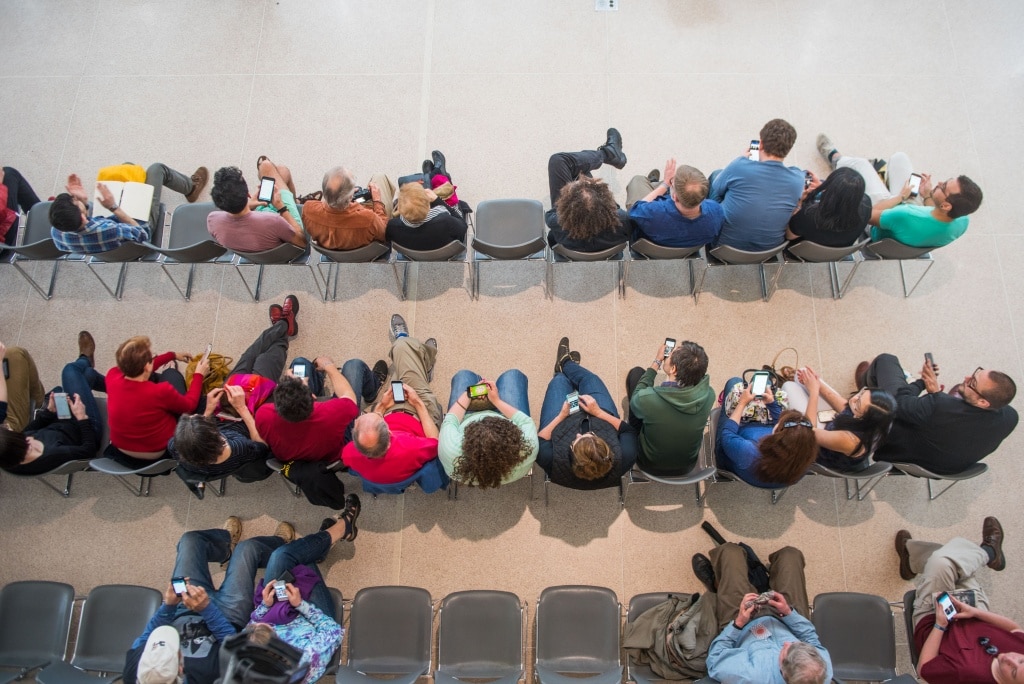
Ashley Capps, founder of AC Entertainment and the creator of Big Ears, agrees. “Certain types of music have different purposes, and all in all they are offering different experiences. It can open you up. Some music makes you appreciate the world around you; it draws your attention more to the environment in which it is created than to itself.
“The classic is John Cage’s ‘4:33,’ where the pianist opens the keyboard and doesn’t play for four minutes and 33 seconds, and you become aware of all the noise of [the] surroundings that you aren’t usually aware of. It makes people uncomfortable, but that isn’t its purpose. Its purpose is to heighten awareness, to make you aware of the world and have a deeper appreciation.”
Journalist Wayne Bledsoe says, “Adventurous music tickles a spot in your brain that doesn’t get stimulated otherwise. It’s the same if I go to a restaurant: I don’t want a hamburger; I want whatever is the most interesting or most signature thing. And it’s the same thing with music: It isn’t always pleasant, but it’s giving you something you need. I watched ‘Leaving Neverland,’ and I didn’t enjoy it, but it was information I needed. And art can be like that. It might not be soothing. Or it’s like a massage: It might really hurt, but you need to hurt to get better.”
Rankin agrees, adding “If you are looking for a festival where every pleasure center is achieved, that isn’t Big Ears. Big Ears is something else entirely. It might frustrate you. You might not be happy with a note or a chord change. You might not understand what you are hearing, and you have to be OK with that.”

The theme of struggle emerged time and again over the course of having these discussions. But as Capps explains, “There is a lot to be gained from not over-intellectualizing this. There can be an advantage to your own raw, immediate experience and to the struggle of trying to figure out, ‘What the hell am I supposed to be hearing here?’ And the trick isn’t knowing in advance, but being willing to ask the question and to struggle to understand it.”
When asked if the struggle to understand is worth it, Capps replies, “Maybe it’s not. It is to me, and I find it a rewarding way to live. You know, when people talk about being bored, I have no earthly idea what they are talking about. I have no recollection of ever being bored because there is so much to see and explore. The ultimate antidote to being bored is this openness to discovery because life is full of amazing things, and that’s the bottom line of the experience for me. In many ways, the music or the food or the wine or the beer or the travel is just a vehicle to that experience of the world.”
Horn concurs. “I never had the presupposition that I had to enjoy something,” she says. “I guess I’m a little bit of a masochist: I like pain. I like struggle. It’s primal. I need it to be a chase. I need a challenge. I need to want it. If it’s too easy and too accessible, I don’t want it. I get bored if I don’t have to work to understand something.”
In the end, the struggle comes down to a matter of trust that somewhere, somehow, people enjoy this. As Bledsoe says, “It is like a relationship, like people who cannot let themselves be vulnerable. Being vulnerable is freeing. You have to give part of yourself over. Most people can’t let themselves go and totally trust, and you have to do that with the artist. You have to say, ‘I trust that you are not going to bore me or insult my intelligence.’ You have to give up control.”

A second aspect of attendees of Big Ears is that they tend to be process-oriented. That is, they want to know how and – more importantly – why artists make the choices they do.
They can be slightly obsessive and want details about what to expect. As Capps says, “There is an active aspect where one nurtures and develops one’s enthusiasms. There is a process, not always a conscious one because if you’re wired to do it, you just do it.” Horn feels the same, “I am process-oriented. The how, the why: I want to understand. Existing, to me, is insane. The fact that we exist and that we are communicating right now is nuts. From the time I was a little kid, I was like, ‘This is nuts.’ And I wanted to know why, and so I applied it to EVERYTHING: the food, the music, whatever, I was like, ‘This doesn’t make sense,’ and I wanted to know why.”
Many people apply their love of learning from other fields of study to music. Local jazz artist and promoter Kelle Jolly says, “You have to be curious about everything. I was president of the engineering team. I love to know how everything works. My dad would make me read a book whenever I asked a question. I started cheerleading and soccer, and I read cheerleading or soccer books because I wanted to know the whole spectrum of what was there.”
Bowers agrees, saying, “I was just drinking light beer and didn’t think about it. But then I started seeing craft beer and, having a scientific background, why stuff is, how it’s done … sour beer is the ultimate of how it’s done. I was like, ‘This is weird, this is sour,’ but I heard people talking about the process, and it made me understand. I was fascinated with how it was made, and that made me appreciate the taste.”
However, the number one thing people talked about when they discussed what they found in the type of music Big Ears celebrates is community. As Winston says, “Did music save your life? Me too. There’s a lot of people like that.” Capps goes further, saying, “Certainly in my mind, it’s all communal. Even meditation or yoga is personal, but it’s more powerful in a group because of the energy of a group of people focused in a similar manner on a similar thing. [At] any musical festival – and Big Ears certainly counts – people coming together to have a shared experience is what it is all about. The group dynamic is a central component of the experience.
“The beautiful thing is that I have discovered people all over the world who have similar affinities and experiences, and I don’t feel lonely about it because it has given me a network of people whose tastes have evolved in very similar ways as mine have.” It’s about finding your own path, music that makes you happy that is outside the mainstream enough to attract like-minded folks.”
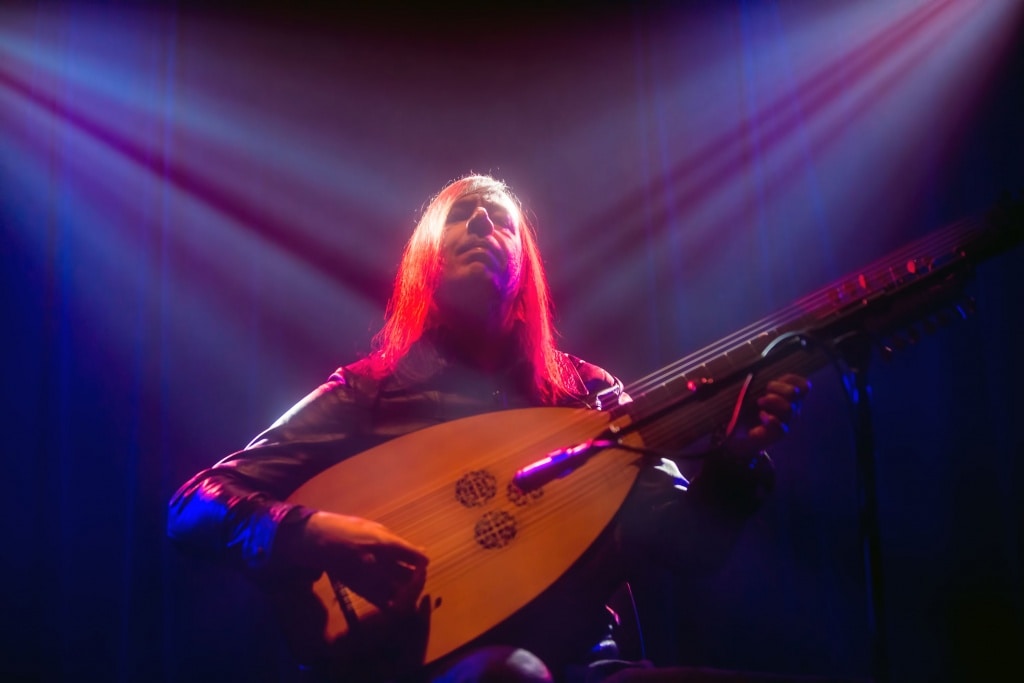
Brandon Gibson, director of Marble City Opera, says, “I consider myself outside of the norm because when you stick to the norm, it is extremely … limiting. Especially in music, you meet people who don’t like bluegrass or jazz or metal or country, and 99 percent of the time it isn’t that they don’t like the actual genre because music is all the same. It’s that they have attached some connotation to some group or person or way of thinking that they want to block out, and I find that limiting.”
Connecting process with community, Jolly says, “You have to focus and be obsessed to be great. So I dive deep because I want to connect to people. I want to know everything so I can have more ways to connect with people.”
Todd Steed, NPR personality and musician, sees music as a connecting force, as well, “What does music do? Connecting to people, to sound. But especially with jazz, the absolute freedom in the music, it’s something I’m now starting to notice consciously and love. I’ve been going through all my Art Ensemble of Chicago records and really listening, and at their best I just feel freedom. I feel these are people who are free in every way, and they express it through music. And that’s a cool feeling to tap into, even if it isn’t yours. Or maybe it is yours … you just don’t realize it’s yours.”
Finally, Odom sees talking about the music as an essential part of experiencing it. “One of the best things about Big Ears is knowing that there are friends in the audience, knowing you are together with people. I’ve never been to a festival where people look forward just as much to talking about it and analyzing it and figuring it out. I can’t wait when a show is over to see someone I know and talk about it.”
In the end, Big Ears is an experience that five people will experience in five unique ways. Everything about it is new, but as Mayshark says, “Life is so much more interesting when every day you have something new to discover.” Echoing Mayshark’s sentiment, Odom says that all of Big Ears is about being open-minded. “If you go into Big Ears with a truly, sincerely open mind, you will find a new musical love.
“I think that I am more experimental in other areas of my life because I gave Big Ears a chance, and it won me over. I’ve never really thought about this, but so much of my personality now is trying new things and giving things a chance – and I think before my first Big Ears, I was a lot more reluctant. Through the festival, I was able to teach myself how to give difficult things a proper go. Big Ears showed me that I don’t know everything and that there are things that I should not just give a chance to but run straight towards.”
Perhaps the most important lesson to take away – and this is certainly my experience – is that Big Ears is not four days a year in the springtime but rather a mindset one can carry throughout the year. Guitarist Tim Lee can have the last word: “Big Ears is a wonderful thing that is great for the community, but people get caught up in this idea that it’s like Christmas and only happens once a year. What they miss is that there is adventurous music all year long. You just have to look for it. It would be like giving happening only on Christmas. Wouldn’t that be sad? Instead, it happens all year long if you are open to it and look for it.”
NO FLUKE: Interview with Founder Ashley Capps • Artist Profile: Caroline Williams, author of ‘Lucy Negro Redux’ • Into the Rabbit Hole • BLANK’S BIG EARS ARTIST GUIDE • FILM Guide • Pilot Light • Tickets • Schedule



